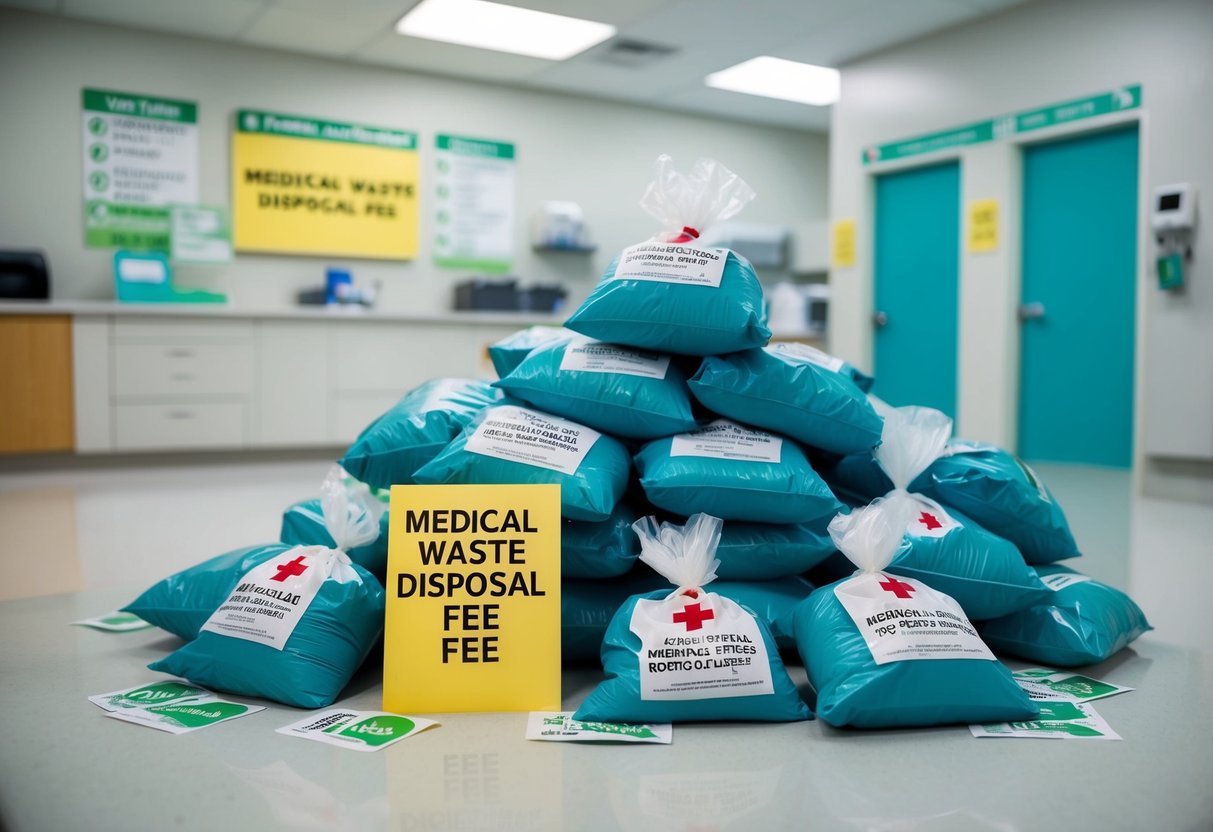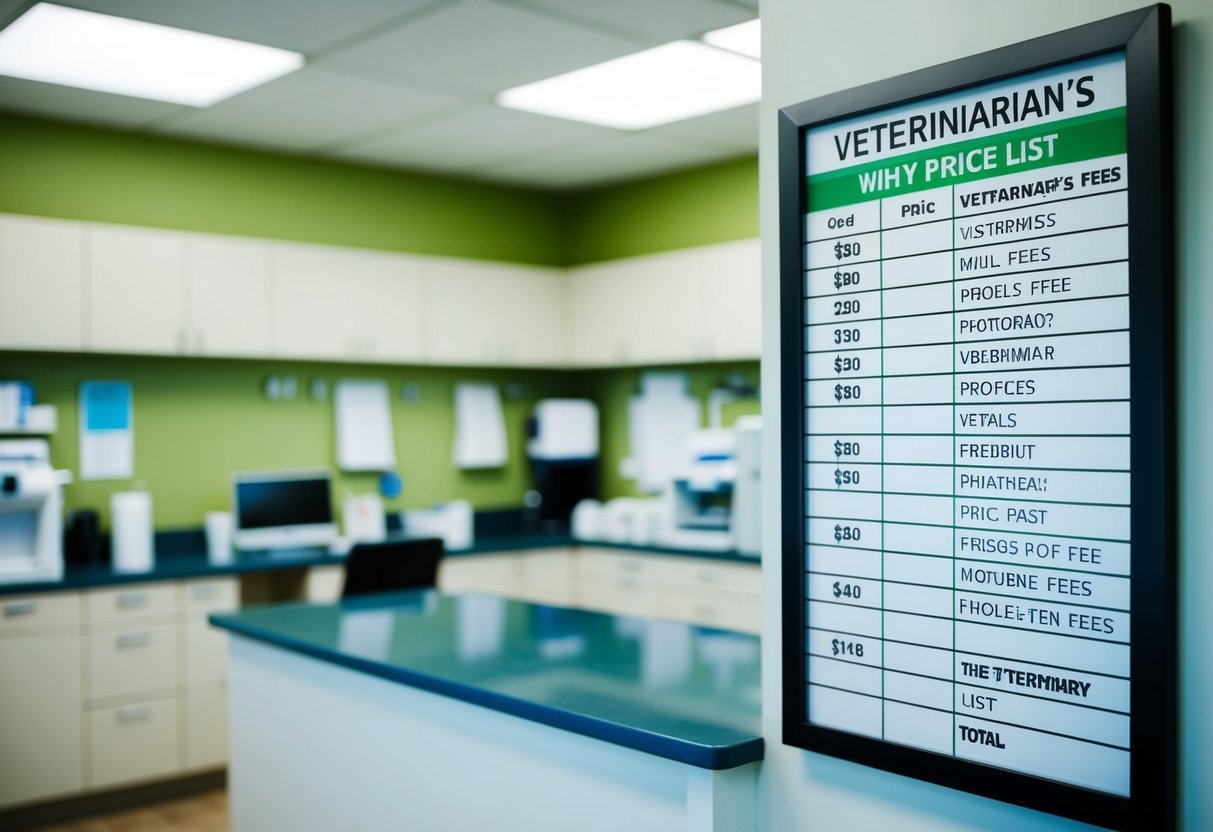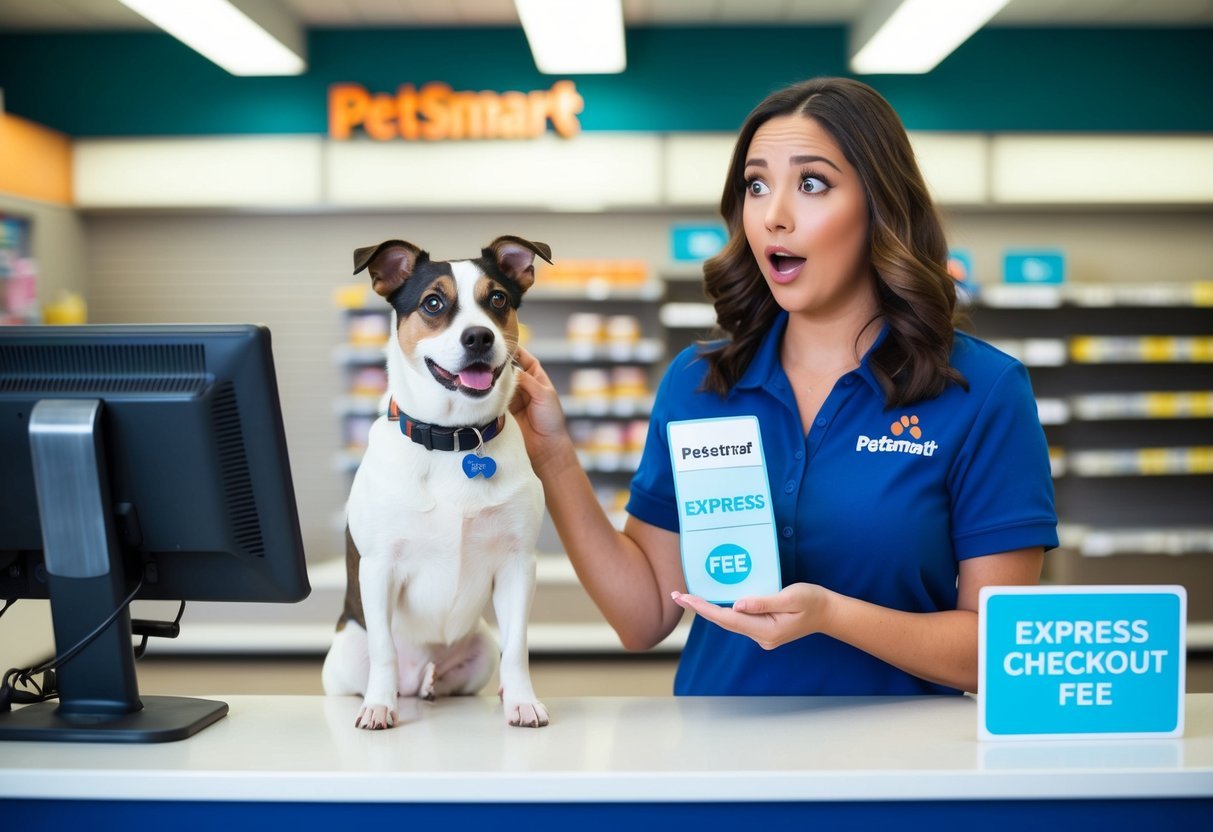When you take your dog to PetSmart for a vet visit, you trust that you know what to expect in terms of costs.
However, many pet owners are surprised to discover additional fees that can add up quickly, leaving you wondering where your money went.
Understanding these hidden charges can help you prepare better and make informed decisions about your pet’s care.
It’s important to be aware of what those extra fees might be as you plan for your pet’s health expenses.
Many people only focus on the basic visit costs and overlook other potential charges that could affect their budget.
By learning about these hidden fees, you can avoid surprise expenses down the road.
1) ‘Exam Room Fee’

When you take your pet to PetSmart, you might encounter an “exam room fee.” This is a charge that can catch you off guard.
This fee is often added to your bill when you visit a vet.
It usually covers the cost of using the exam room during your appointment.
Many pet owners assume the initial consultation price includes everything.
But this fee can be an extra cost on top of your regular visit.
For a basic check-up, you may pay between $45 and $70, but don’t forget the exam room charge can be separate.
It’s important to ask about all potential costs when booking your appointment.
If your pet needs additional services, those can add up quickly.
Specifically, if tests or vaccines are required, those will cost more too.
Knowing about the exam room fee in advance can help you budget better for your pet’s care.
Always clarify these fees with the staff to avoid surprises at checkout.
2) ‘Medical Waste Disposal Fee’

When you take your pet to the vet, you might notice a charge for medical waste disposal.
This fee is meant to cover the cost of safely handling and disposing of waste like syringes or surgeries.
Veterinary clinics deal with various biohazardous materials.
To keep everyone safe, they must follow strict rules for disposing of this waste.
This can lead to extra costs that they pass on to you.
The amount of the medical waste disposal fee can vary.
It often depends on the size of your pet and what services are performed.
Some fees might be as low as a few dollars, while others can be higher depending on the procedure.
Though it may seem small, this fee is a necessary part of pet care.
It helps ensure that your vet is following guidelines for safety and cleanliness.
It’s always good to ask your vet about any fees you don’t understand.
They can provide more details about why these charges exist and how they’re calculated.
Prescription Processing Fee

When you go to get your pet’s medication, beware of the prescription processing fee.
This fee can sneak up on you like a dog at dinner time.
It’s an extra charge added when you have your vet’s prescription filled.
Some clinics might not mention it upfront, so it’s good to ask before you check out.
If you are using PetSmart’s pharmacy service, keep in mind they might contact your vet to confirm the prescription.
This can lead to additional processing costs.
Before you order, ensure you understand what fees might apply.
Look for any fine print that outlines these charges.
Knowing about the prescription processing fee can help you budget better and avoid surprises.
4) ‘Admin Injection Fee’

When you take your pet to a vet at PetSmart, you might notice a charge called the “admin injection fee.” This fee is added when your pet needs an injection, whether it’s for a vaccine or other medication.
The fee covers the time and expertise of the vet or nurse giving the injection.
Even though it seems small, it can catch you off guard if you’re not prepared.
You might only think about the cost of the vaccine itself, but this fee can add to your total bill.
It’s important to ask about all potential fees when arranging your vet visit.
Understanding these charges can help you budget for your pet’s care.
Knowing about the admin injection fee ahead of time makes the process smoother and less surprising when you receive the bill.
5) ‘Express Checkout Fee’

When you take your pet to PetSmart for a vet visit, you might come across what’s called an “Express Checkout Fee.” This is an extra charge that not everyone knows about.
This fee usually applies if you want to speed up the checkout process after your appointment.
If you’re in a hurry, it can be a convenient option.
However, it’s important to be aware that this convenience comes with a cost.
The Express Checkout Fee can vary based on your location and services provided.
It’s a good idea to ask about any additional charges when you make your appointment.
Being informed can help you budget better and avoid surprises when it’s time to pay.
Knowing about this fee makes you a more savvy pet owner when navigating vet care at PetSmart.
Understanding Vet Fees

Vet fees can be tricky to navigate.
Many pet owners find themselves surprised by the total bill after a visit.
It’s important to know why prices may not be clear and how in-house clinics compare to regular vet offices.
Why Vet Prices Aren’t Transparent
Vet prices often lack transparency due to various factors.
Each clinic may have different pricing structures based on location, the veterinarian’s expertise, and the type of services provided.
You might find that routine services seem affordable, but when you add in diagnostics, treatments, or special procedures, the costs can increase rapidly.
Always ask for a breakdown of costs ahead of time.
This gives you a clearer picture of what to expect.
Don’t hesitate to inquire about any additional fees, as these can add up significantly.
Comparing In-House Clinics to Regular Vets
When you visit in-house clinics like those at PetSmart, you may notice pricing differences compared to traditional vet offices.
In-house clinics, such as Banfield located in PetSmart, typically offer competitive rates for basic care services.
However, specialized services—like surgeries or advanced diagnostics—might be more expensive.
For example, routine checkups may be cheaper, but surgical procedures could carry higher fees.
It’s essential to weigh these costs against the convenience and care level you receive at each type of clinic.
Always review your options to find the best fit for your pet’s needs and your budget.
How to Avoid Unexpected Charges
When taking your pet to the vet, it’s important to be aware of potential extra costs.
With some careful planning and communication, you can keep those unexpected charges from adding up.
Tips for Discussing Costs with Your Vet
Before your appointment, make a list of services you think your pet might need.
This includes vaccinations, checkups, or any specific treatments.
When you arrive, ask for a clear breakdown of what each service will cost.
It helps to say, “Can you explain the fees for these visits?”
Don’t hesitate to discuss your budget.
Let your vet know what you can afford.
They may recommend options that work within your limits.
Finally, always confirm if there are any additional fees, like for medications or tests.
This way, you avoid surprises when it’s time to pay.
Frequently Asked Questions
You might have some questions about vet visits at PetSmart, especially regarding costs and fees.
Here’s what you need to know to navigate those bills better.
What’s the average cost for a kitty check-up at PetSmart without insurance?
A typical check-up for your cat at PetSmart can range from $45 to $70.
Keep in mind, additional services like vaccines or tests might cost extra.
So, plan for those in your budget.
Are doggie doc visits pricey without insurance at PetSmart?
Yes, visits for dogs can also add up.
Expect to pay a similar range as cats, with basic check-ups generally between $45 and $70.
Again, extras like treatments or shots can significantly increase costs.
Does having pet insurance actually save you money at the vet’s office?
Having pet insurance can help reduce your out-of-pocket costs, especially during unexpected visits.
Be sure to read the policy carefully to understand what’s covered and if there are waiting periods before benefits kick in.
How can you tell if your vet’s bill is more ‘yikes’ than ‘yay’?
Look closely at your itemized bill.
Fees like ‘Exam Room Fee’ or ‘Prescription Processing Fee’ can add up quickly.
If you see unexpected charges, ask your vet for clarification.
It’s okay to question what you’re paying for.
Are vet fees all over the place or is there a standard charge?
Vet fees can vary by location and type of service.
Some procedures have standard pricing, while others can fluctuate.
It’s a good idea to check with multiple vets to get a sense of typical costs in your area.
Any tips for dodging those big, scary vet bills?
To avoid high vet bills, keep up with regular check-ups.
Preventive care can catch issues early before they become expensive problems.
Also, consider asking for a breakdown of fees upfront, so you know what to expect.

